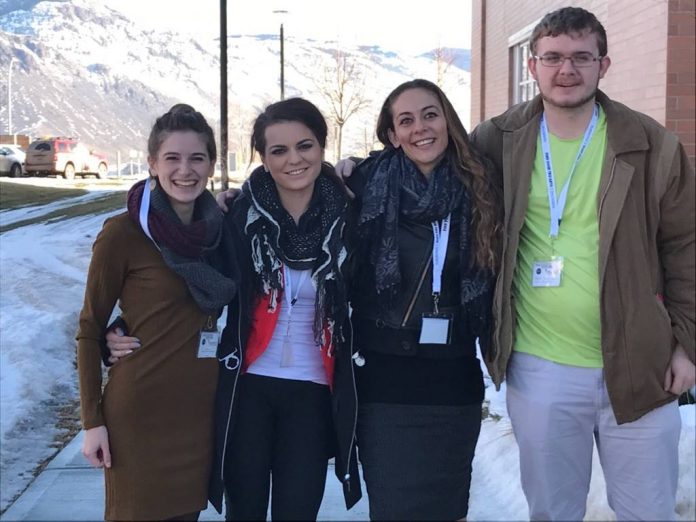While the world witnessed Donald Trump’s inauguration on January 20, a gathering of fledgling scholars at Thompson Rivers University’s Philosophy, History, and Politics (TRU PHP) Undergraduate Conference in Kamloops engaged in collegial discussions pertaining to their individual research interests and the shared political landscape in which their research occurred. This was the 10th anniversary of the TRU PHP Conference, and an opportunity for undergraduate students to highlight their research accomplishments. Participants emerged from universities across Western Canada as well as Washington State University.
The conference opened with a panel discussion on Trump, democracy, and North American politics, which included a compelling presentation from UFV philosophy student Serena Geary, who discussed the incongruence of Adam Smith’s moral philosophy with Trump politics. Other presentations throughout the day covered a multitude of complex topics such as global security, migration, and racial politics. While discussions of this nature may yield conflict and intense emotion, the climate was calm and collected, with insightful contributions from participants of varying academic disciplines.
On the second day of the conference, Evelyn Kalman and I — both from UFV’s school of criminology and criminal justice — alongside former UFV student Aaron Siebenga, presented our research findings on youth political disengagement, which we had gathered through an interdisciplinary course offered at UFV during the Winter 2016 semester. We were accompanied in addressing youth political disengagement by students from TRU, University of Northern British Columbia (UNBC), University of British Columbia Okanagan (UBCO), and Vancouver Island University (VIU). Elections BC representatives, who had funded the research of the five participating universities, attended the event and offered insightful feedback as we engaged in a collective discussion.
While each Elections BC research project was unique in design and surveyed within distinct communities, there were consistent themes noted within the findings. Establishing these themes across the multiple studies validated our own research, and allowed for collaborative conversation among the researchers. Coming together as like-minded academics was also an opportunity to identify gaps in the research. For instance, we collectively acknowledged the limits of our research due to the undersampling of youth beyond academic settings.
The ability to collaborate in this manner is part of what made the conference an excellent academic opportunity for students interested in pursuing graduate studies. In fact, many students expressed an interest in continuing their undergraduate research at the graduate level. Participants were able to create networks beyond their own universities and engage in meaningful dialogue on local and international issues. Opportunities of this nature are rare, as the TRU PHP Conference is one the few undergraduate conferences available in Western Canada.
Beyond the academic gains, the TRU PHP Conference also revealed an ability of young citizens to gather, discuss emotionally-charged topics in a logical manner, and identify strategies and policy solutions to our current social issues. As we observe the fear-stricken headlines since the Trump inauguration, my peers who demonstrate growing passions for research and positive social change provide some degree of optimism. I can only hope that such collegial conversation will continue beyond these academic events.


